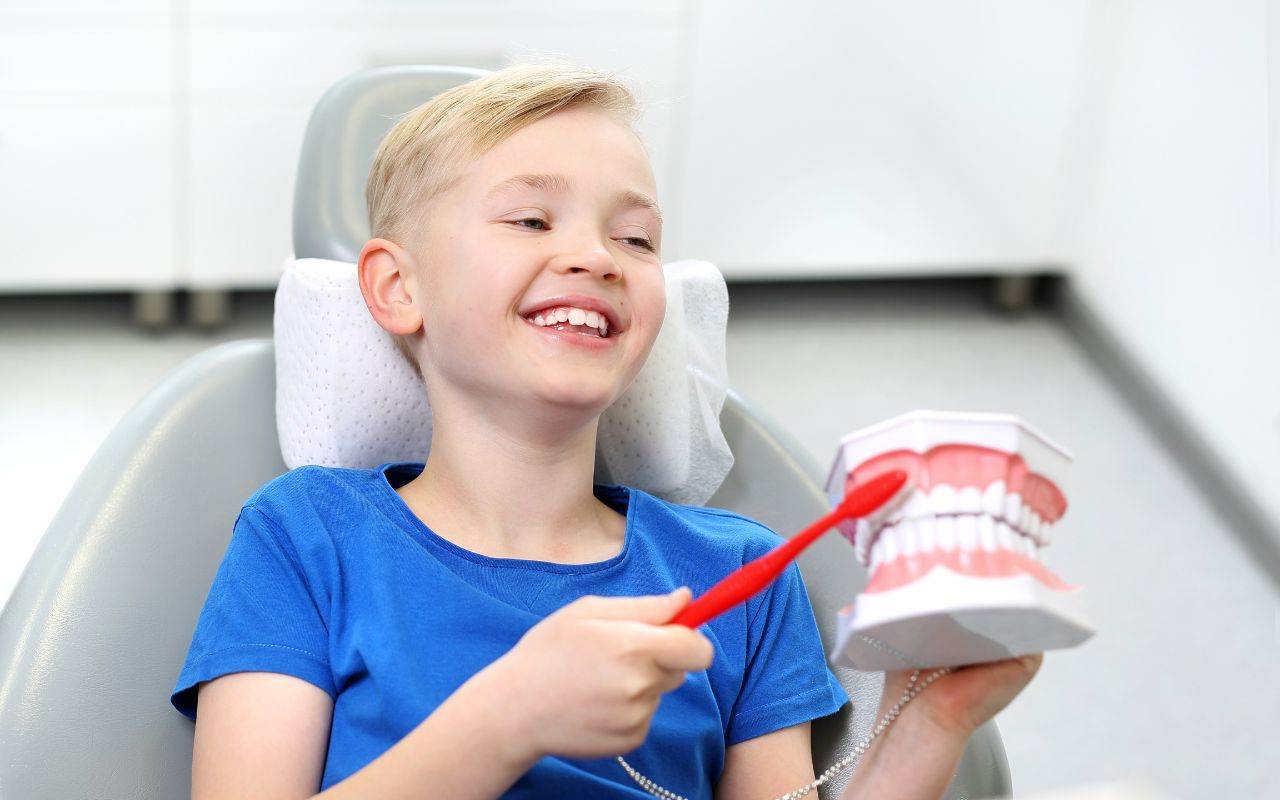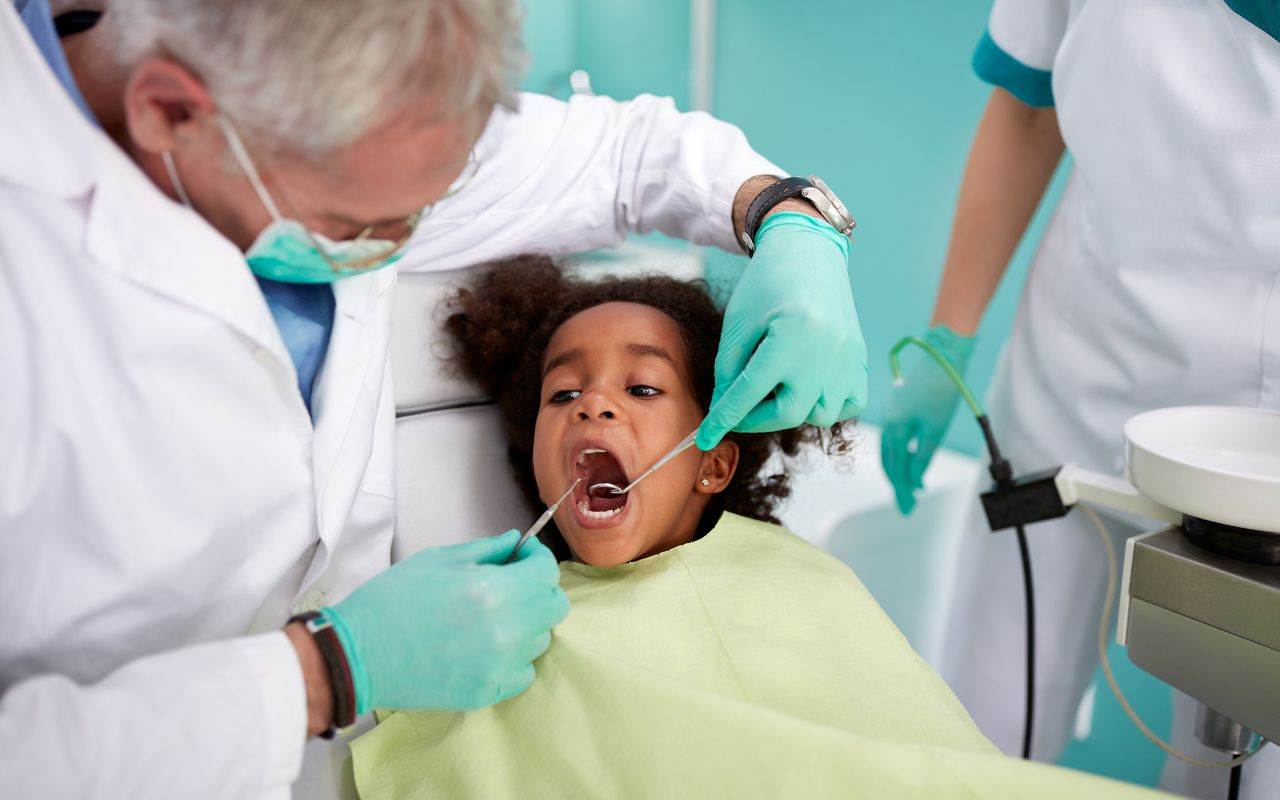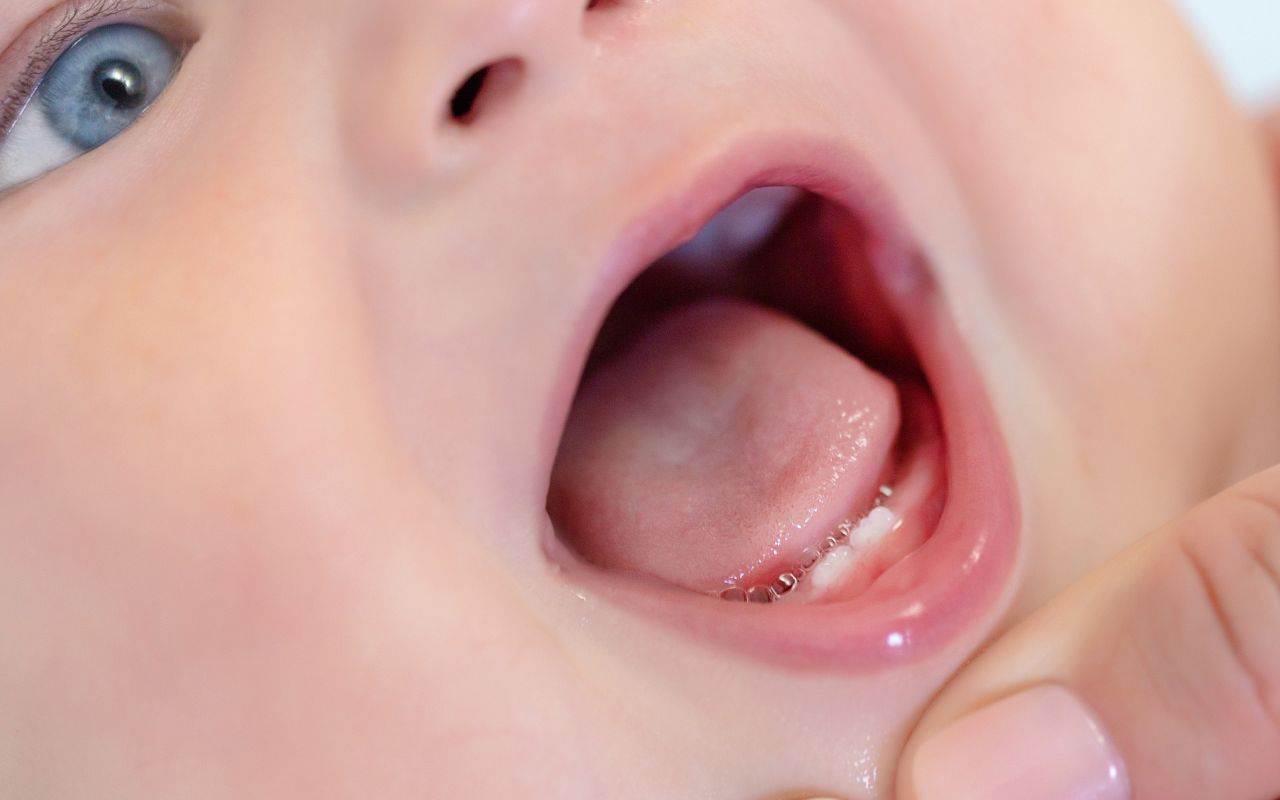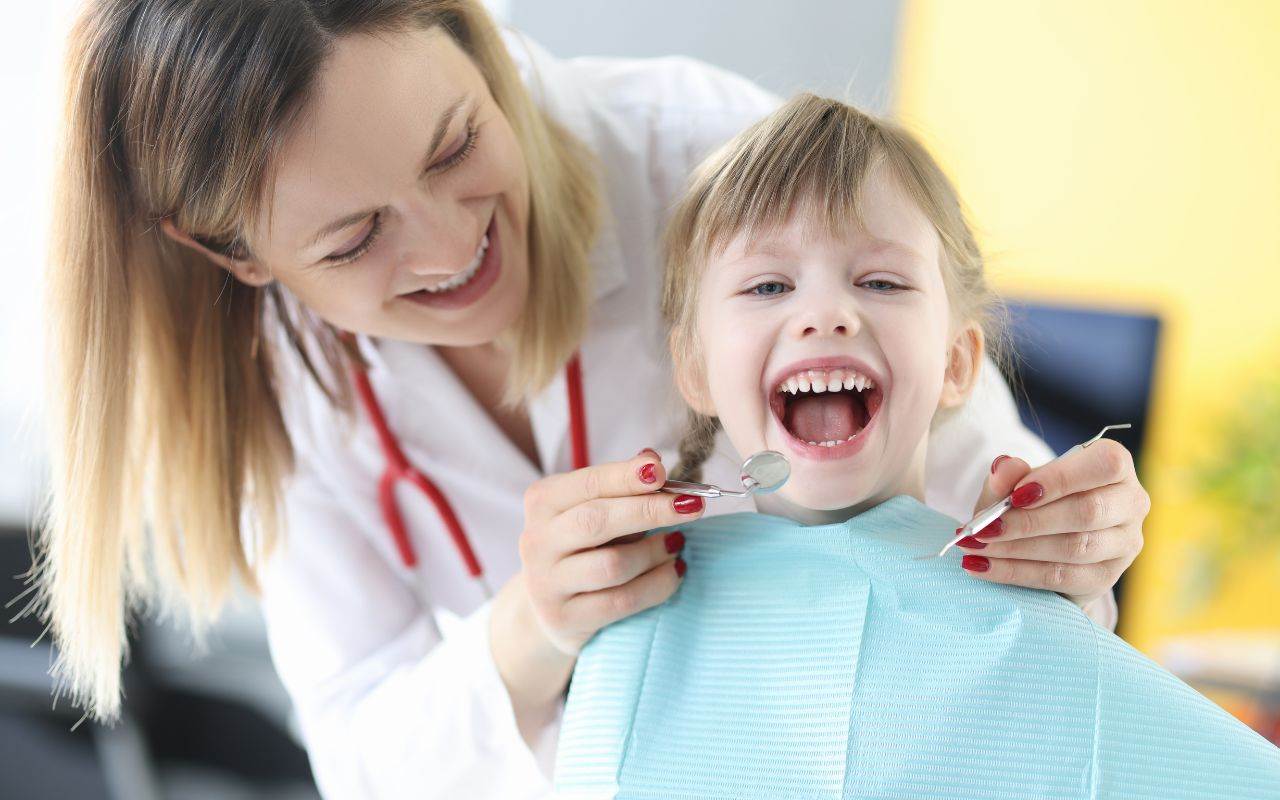Bradford Family Dentistry caters to its youngest patients to ensure kids maintain excellent oral health as they grow. We thought since February is Children’s Dental Health Month, it’s the perfect opportunity to share how we help promote children’s dental health and why it’s so important.
Why Regular Dental Care For Children Is Important

One of the main reasons we focus on children’s dental care is that we believe in creating lifelong relationships with our patients – or at least contributing to our young patients’ commitment to their own oral health. When parents follow the recommended schedule for their kids’ dental care, they ensure their kids have the best chance of maintaining exceptional oral health, both in childhood and for life. This is a huge gift in our eyes, as when kids enjoy excellent oral health, it helps them thrive in all other areas of their life.
Kids with poor oral health can suffer from pain, the threat of gum disease, the risk of infections, imperfect smiles, bite issues, and bad breath. All these things impact their well-being, their social lives, their overall health, and their self-esteem. As a result, they are far less likely to develop proper socialization skills, speech, and confidence, and their ability to successfully flourish in their school environment greatly diminishes.
Oral Health Issues: Adult vs. Baby Teeth

There are many differences in the types of dental issues that impact adult versus baby teeth, including:
- Number and Composition of Teeth: Adults typically have 32 teeth, while children only have 20. As the jaw grows, kids develop the space needed to accommodate their permanent teeth. Adult teeth have more ridges compared to the smooth, flat surface of baby teeth; this is so they can force their way through the gums when erupting. Baby teeth also have a thinner layer of protective tooth enamel than adult teeth, making them more susceptible to decay and cavities.
- Bottles: Babies and toddlers who drink from a bottle, especially when sleeping, increase the risk for cavities. Since cavities are formed by bacteria, and sugar is a source of food for bacteria, bottle-feeding sweet drinks, including milk and formula, can lead to acid erosion of baby teeth.
- Pacifiers and Thumbs: According to the Canadian Dental Association, pacifiers and thumb-sucking should preferably end by the age of 2 to 3 to avoid shifting the position of teeth. Pacifier use and thumb-sucking beyond this age can lead to a narrowed upper palate where the roof of the mouth curves too much, reducing tooth spacing in the upper jaw. Other outcomes include bite issues, difficulty speaking, difficulty chewing, and pain. Dentists can offer solutions to avoid and correct these issues, as well as tips to help stop thumb-sucking.
- Cavities: Children’s cavities are infectious and can spread throughout the mouth, even to permanent teeth below the gums. This puts adult teeth at risk before they even erupt, which has a serious impact on children’s dental health. Regular dental checkups help to spot issues early before the permanent teeth are damaged.
- Gaps: Parents often worry the gaps between their children’s baby teeth mean they’ll need braces. We watch the progression of permanent teeth to see how they impact the appearance, placement, and bite of your child’s teeth so we can address issues early.
- Missing Teeth: Some kids are missing baby teeth altogether, which means they can face issues when their permanent teeth come in. Since baby teeth act as “placeholders” for adult teeth, missing teeth can cause spacing issues requiring either braces or surgery once the permanent teeth come in.
Adult vs. Children’s Dental Health Treatments

Some of the common differences when performing adult vs children’s dentistry procedures include:
- Preventative Care and Treatments: Preventative care for kids differs from adults as we must follow the development of your child’s permanent teeth. It is common for dentists to stress the importance of fluoride treatment for baby teeth, and may even recommend dental sealants to protect the thin enamel of baby teeth from tooth decay. For adults, we focus on prevention but also on tooth “maintenance”. This is because as we age, we tend to see more tooth damage requiring restorative work that might include treatments like crowns. It’s also common for adults to request cosmetic procedures such as tooth whitening, which is not a concern for kids.
- Education: We never stop teaching our patients how to improve their oral health, no matter their age. However, children are particularly open to learning, and the sooner we start seeing your kids for regular checkups, the more successful we are at teaching them important oral care habits that will protect their teeth for life.
- Relationships: How we treat your children today during their appointments impacts their attitude and comfort level with dental care throughout their lives. By making dental care fun, welcoming kids with smiling faces, using a gentle touch, and providing ongoing education, we ensure kids understand that we’re the good guys and dentists are their friends. Our goal is to ensure anxiety-free dental visits for kids so they can maintain healthy teeth and gums for a lifetime.
- Accommodating Small Mouths: When seeing a dentist who specializes in dental care for kids, your child enjoys a more comfortable experience during all checkups and treatments. Most dentists have standard-sized dental equipment that makes it necessary for your child to open their mouth wider and increases the risk of the tool clanking against their teeth, tongue, or upper palate, potentially causing fear and anxiety. It can also mean cleanings aren’t as thorough as the tool is too awkward to reach the back area of a child’s small mouth. We use smaller dental tools, so your children are comfortable while allowing us to reach all areas of the mouth.
Frequently Asked Questions About Children’s Dental Health

What age is a child’s first dental appointment?
We recommend setting up an appointment as soon as their first tooth appears, and no later than the age of one.

How often should children see the dentist?
A check-up every six months is recommended, but we might recommend more frequent check-ups based on your child’s needs.

What steps do you take to make children comfortable?
Our ultimate goal is to make it fun for kids to come to our office. We do everything we can to make kids feel comfortable during their appointments. Things like chair rides, Disney and superhero-themed treatment rooms with TVs and music, making dental tools sound funny instead of scary, explaining everything we do in language they can understand, etc., all contribute to positive dental experiences.

How can I encourage my kids to brush their teeth?
Making brushing more fun definitely helps, such as singing a song to get them to brush for a full two minutes, using dental apps for kids, or dancing to their favourite music while they brush and floss.

Remember parents, February 28th is also Tooth Fairy Day, so plan something special to celebrate the arrival of new teeth!
Call today to schedule an appointment for your children’s dental health at 905-775-5307, or click here to request an appointment.
